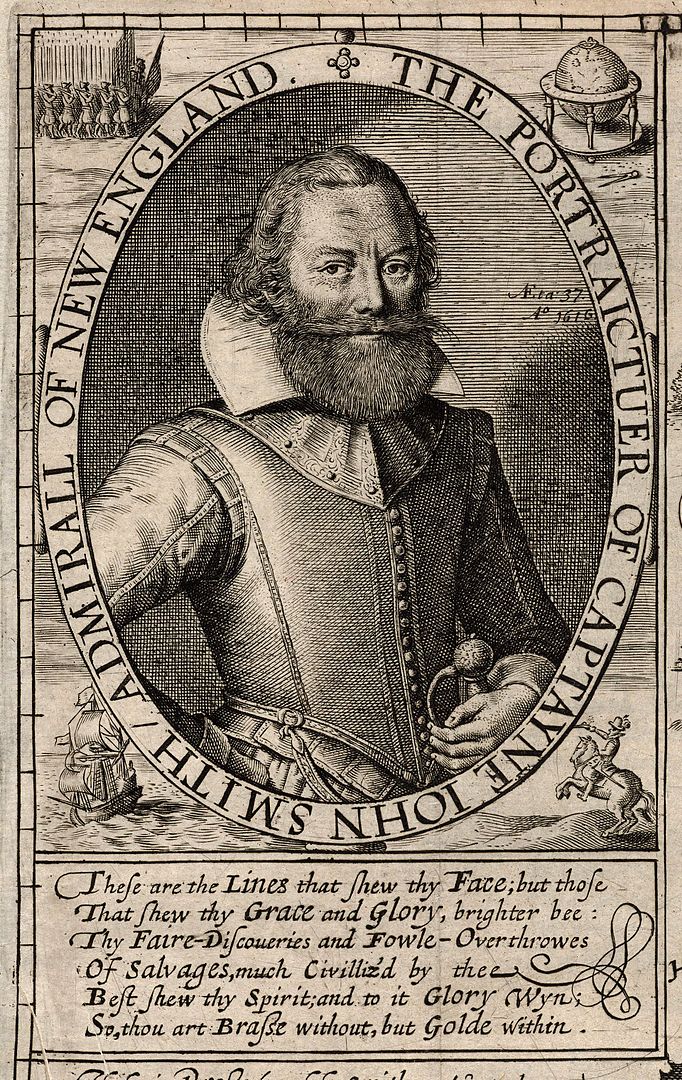Authors:
Historic Era:
Historic Theme:
Subject:
October 1958 | Volume 9, Issue 6


Authors:
Historic Era:
Historic Theme:
Subject:
October 1958 | Volume 9, Issue 6

The origin of the controversy is to be found in the tragedy and misery of the early Virginia years, it was natural that some settlers should try to fix the blame for their misfortunes, and that others should seek credit for the survival of the colony. Among the latter, hardly a single leader made a claim not hotly disputed by his companions, and later generations have taken sides just as dogmatically. Because Smith’s claims were the most startling, they have been the most warmly attacked—and defended.
To begin with, he claimed that even before coming to the New World he had accomplished deeds of derring-do against Europe’s age-old enemies, the Turks. As a volunteer with the Austrian forces on the Hungarian and Transylvanian border, he had, he alleged, beheaded three Turks in open combat, winning the title of captain and a coat of arms for his trouble. Subsequently, he had been enslaved; befriended in Turkey by “a noble gentlewoman of some claim”; and sent around the Black Sea before returning to England. At Jamestown a few years later, he claimed, he had assumed command of the struggling colony and saved it from starvation by obtaining food from the: Indians. To crown it all there was his tale—one of the most appealing in early American history—of his last-minute rescue from death by the beautiful Indian princess Pocahontas.
But did the rescue actually take place? Did Pocahontas love Smith, and did she pine for him after his departure? Was he really the subjugator of “nine and thirty kings” in his Indian forays? Was he really Jamestown’s savior, and were later American colonies actually, in his words, “pigs of my own sow,” and, anteriorly, what about those three decapitated Turks?
A few faces about John Smith are undisputed. He